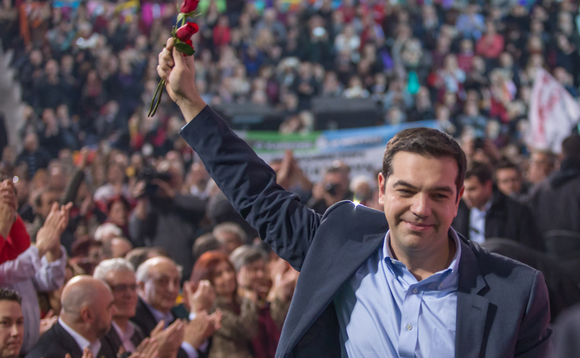
Greek election kickstarts uncertain year for southern Europe

As 2014 drew to a close, European markets were thrown into uncertainty by the Greek parliament’s failure to elect a new head of state. Kenny Wastell assesses the potential impact of Sunday's election result for private equity in the region
The failure to elect a new head of state in Greece last year prompted a snap election, which saw populist party Syriza form a coalition with right-wing party Independent Greeks. Markets typically respond nervously to political upheaval, but in this case tensions have been compounded by Syriza's stated intentions.
Investor concerns focus on the impact of the party's anti-austerity rhetoric and its plans to renegotiate Greece's debt, with many commentators predicting this may lead to the country's exit from the single currency. The outcome of the election is likely to shape the fortunes of European markets throughout 2015 and beyond.
"The austerity measures that followed the economic crisis changed the political landscape across Europe," says Omiros Sarikas, director of mergers and acquisitions at AHV Associates. "This year we are seeing the reverse of that. The political situation is now affecting the markets, the banking system and the process for growth in the wider business environment."
Impending credit crunch
Speaking shortly before the election, Sarikas was forecasting potential knock-on effects for both the Greek and wider European private equity industries. He predicts an impending credit crunch in Greece – the inevitable outcome of an increasing reluctance by banks to lend as a result of the possible fragility of Greek deposits. This, in turn, will make leveraged buyouts, already a rarity in the country, increasingly difficult.
Sarikas also explains the possible outcomes in the – albeit unlikely – event that the incoming government were to rule any given privatisation was illegal. This, he says, would present a major blow to the trust of large-scale international investors and would reduce their appetite for buying into Greek public assets.
"On the flip side," says Sarikas, "I expect to see strong momentum in the venture capital ecosystem in Greece and a resurgence of debt restructuring by hedge funds, which will be attracted to debt-for-equity transactions and non-performing loans (NPL). At the moment you have a situation where there are a lot of distressed assets in need of credit lines. Once you have tackled the NPL challenge, the next wave of deals will involve the consolidation of sectors and the pumping of development capital into high-growth, export-driven businesses. However, political and economic stability would need to return prior to this happening."
Against the backdrop of mounting uncertainty in Greece, private equity across southern Europe as a whole saw strong growth last year, with deal volume up from 141 to 156 year-on-year. Similarly, aggregate deal value increased by 37.8% to €10.88bn, its highest level since 2011. The biggest success story of the year was Spain, which at €6.62bn accounted for well over half the aggregate deal value in the region. This was almost double the €3.41bn aggregate value invested in Spanish assets in 2013.
Despite positive momentum, Spain is facing a degree of political uncertainty of its own in the form of the Catalan independence question. In an informal consultation last year, around 80% of Catalans demonstrated their support for an independent Catalonia – a result skewed by a boycott from anti-independence parties. However, according to pollster Centre d'Estudis d'Opinió, support for independence within the region was as high as 45.2% in November.
A notable trend in both the Spanish and Italian markets in 2014 was mid-market players shifting their focus towards smaller assets, largely due to overcrowding and inflated pricing in the mid-market. An industry commentator told unquote" they expected this to be compounded by a developing trend whereby Italian family-run businesses are increasingly attracted to local GPs capable of maintaining closer relationships.
In the weeks and months ahead, investors will keep a watchful eye over the political events unfolding across southern Europe. If the key to economic stability is indeed political stability, the phrase of the moment must surely be 'wait and see'.
Latest News
Stonehage Fleming raises USD 130m for largest fund to date, eyes 2024 programme
Multi-family office has seen strong appetite, with investor base growing since 2016 to more than 90 family offices, Meiping Yap told Unquote
Permira to take Ergomed private for GBP 703m
Sponsor deploys Permira VIII to ride new wave of take-privates; Blackstone commits GBP 200m in financing for UK-based CRO
Partners Group to release IMs for Civica sale in mid-September
Sponsor acquired the public software group in July 2017 via the same-year vintage Partners Group Global Value 2017
Change of mind: Sponsors take to de-listing their own assets
EQT and Cinven seen as bellweather for funds to reassess options for listed assets trading underwater








